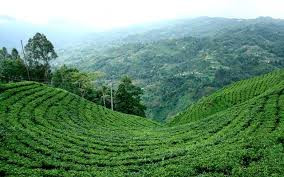Our economic growth and development activities will be pushed back by at least a year or more due to this COVID-19 pandemic. The market is mostly shut, institutions are closed, and daily economic activities have gone down sharply. The tourism industry is another sector that is severely impacted by the ongoing situation. Despite gloomy circumstances, the situation could be taken as an opportunity to promote agriculture if handled properly. This crisis has taught people how important agriculture is, and could be a great opportunity for Nepal to promote agriculture for sustainable development. There is an increasing interest among youths working abroad to return to their country and get involved in agribusiness. Therefore, if the government could bring attractive policies regarding agriculture it could tempt youths to stay in Nepal and engage in agriculture This will not only boost our economy but would also keep the young labor force in the country.
About 66% of people are dependent on agriculture which contributes roughly 33% to the country’s GDP (The World Bank). Apart from agriculture, remittance remain the backbone of the country's economy, with Nepalis abroad sending home cash around 30% of the country's GDP. Nepal is the 19thmost remittance dependent country in the world (The World Bank, 2019) Due to this pandemic, many of these workers have lost their jobs and want to return to Nepal. This could mean an increasing number of people getting involved in agriculture. Hence, an improvement in technology and improvement in our agricultural system could see a huge boost in production and our overall economy.
The current situation demands a boost in agriculture for a healthy and prosperous economy. First of all, our conservative thinking regarding agriculture needs to change. In society, those who are involved in farming are still regarded as lower class, uneducated, and a failure. Nepal was once an exporter of several agricultural products. Now it imports food grains worth billions every year due to change in food habits and lifestyle.
Agriculture in Nepal could be made more attractive and profitable with some improvements. For example, cash crops like tea, coffee, jute, sugarcane, and some medicinal herbs can be exported to countries with high demand in the external market. Researches should be done regarding how we could increase productivity, and there should be special schemes and subsidies to the farmers from the government. For example, legalizing and commercializing marijuana could do wonders as it has a big demand in countries like the USA. Proper research could lower the production cost, which, in turn, would attract more youths toward entrepreneurship and commercial agriculture. Gaining wisdom from traditional farming and following the path of mechanized agriculture and innovative irrigation facilities could increase both food quality and quantity. The provision of storage houses and processing plants should be established, and priority should be given to domestic products to minimize imports. It not only ensures food security but also uplifts the quality of life of people.
Nepal still has not fully recovered from the devastating earthquake of 2015 yet. This means we could be seeing the effects of the current pandemic for years and recovering completely from it will take time. There is a high chance of an increase in poverty if we do not take smart decisions to boost agriculture in time. Well-managed agriculture could assist in ensuring a sustainable food system and income-generating opportunity. Also, agriculture is the best way to recover the rural communities from any loss incurred during this pandemic and create greater resilience in countries like Nepal. Our country should take the COVID-19 situation as an opportunity to welcome our youths from abroad and initiate these modern agricultural mechanisms with proper planning and vision.

